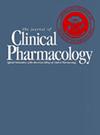Human breast milk as a source of DNA for amplification.
IF 2.9
4区 医学
Journal of Clinical Pharmacology
Pub Date : 2011-04-01
Epub Date: 2010-05-24
DOI:10.1177/0091270010370847
引用次数: 11
Abstract
Studies consistently find beneficial effects of breastfeeding on overall maternal and infant health.(1) Breast-fed infants have a significantly lower incidence of respiratory infection, otitis media, diarrhea, and dehydration, as well as fewer signs and symptoms of atopic disease.(2-4) These health advantages underscore the importance of maintaining the breastfeeding relationship for mother and infant as long as possible. Although many healthcare providers actively encourage breastfeeding for mothers and infants, there are clinical situations that require evidence-based information to inform breastfeeding management. One such situation is decision-making regarding the safety of continuing breastfeeding in the face of needed maternal medications. The current evidence regarding medication and breastfeeding utilizes measurement of drug concentrations in human milk. While strides are being made in human milk pharmacology,(5) it is important to understand the potential role of genetic variability in drug disposition and clinical response- including the impact of genetic changes on drug concentrations in human milk. By identifying genetic factors that are associated with variability in drug concentrations in human milk, we may be able to prospectively provide better guidance to breastfeeding mothers needing to take medications. As in other areas of medical science, pharmacogenetics may be able to advance the human milk science regarding medication use and breastfeeding. In order to perform pharmacogenetic studies, researchers need to obtain deoxyribonucleic acid (DNA) from a human biologic sample. Banked milk samples may help unlock some of the reasons for differences in response, toxicity, or milk drug concentrations if DNA could be extracted sufficiently from these specimens, making them useful for pharmacogenetic studies. The purpose of this study was to determine whether or not DNA could be extracted from human milk in significant amounts to be clinically useful in pharmacogenetic studies. This approach may provide an explanation for inter-patient variability of drug expression into human milk and in exposure of the recipient infant. This is a first step toward integrating pharmacogenetics into human milk pharmacology and breastfeeding management.

人类母乳作为DNA扩增的来源。
本文章由计算机程序翻译,如有差异,请以英文原文为准。
求助全文
约1分钟内获得全文
求助全文
来源期刊

Journal of Clinical Pharmacology
PHARMACOLOGY & PHARMACY-
自引率
3.40%
发文量
0
期刊介绍:
The Journal of Clinical Pharmacology (JCP) is a Human Pharmacology journal designed to provide physicians, pharmacists, research scientists, regulatory scientists, drug developers and academic colleagues a forum to present research in all aspects of Clinical Pharmacology. This includes original research in pharmacokinetics, pharmacogenetics/pharmacogenomics, pharmacometrics, physiologic based pharmacokinetic modeling, drug interactions, therapeutic drug monitoring, regulatory sciences (including unique methods of data analysis), special population studies, drug development, pharmacovigilance, womens’ health, pediatric pharmacology, and pharmacodynamics. Additionally, JCP publishes review articles, commentaries and educational manuscripts. The Journal also serves as an instrument to disseminate Public Policy statements from the American College of Clinical Pharmacology.
 求助内容:
求助内容: 应助结果提醒方式:
应助结果提醒方式:


